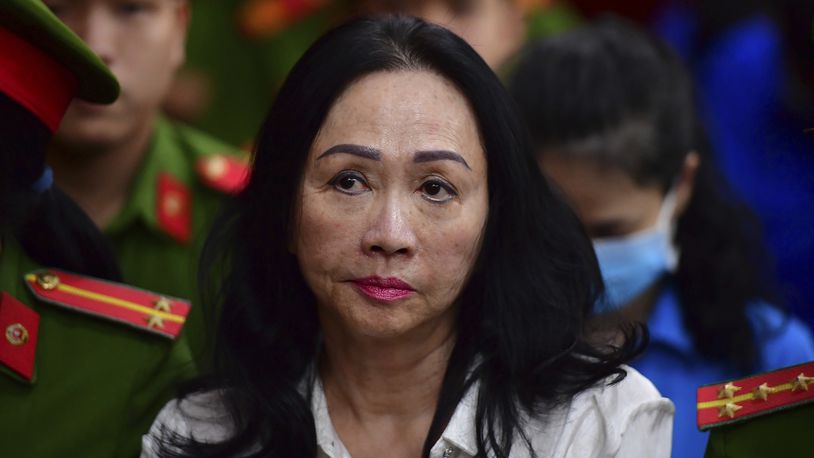Death sentences are not uncommon in Vietnam, but it is rare in financial crime cases and for someone this well known.
Here is a look at the key details of the case.
WHO IS TRUONG MY LAN?
Lan was born in 1956 and started out helping sell cosmetics with her mother, a Chinese businesswoman, in Ho Chi Minh city’s oldest market, according to state media Tien Phong.
She and her family established the Van Thinh Phat company in 1992, when Vietnam shed its state-run economy in favor of a more market-oriented one that was open to foreigners. Over the years VTP grew to become one of Vietnam’s richest real estate firms.
Today the company is linked to some of Ho Chi Minh’s most valuable downtown properties including the glittering 39-story Times Square Saigon, the five-star Windsor Plaza Hotel, the 37-story Capital Place office building and the five-star Sherwood Residence hotel where Lan lived until her arrest.
Lan met her husband, Hong Kong investor Eric Chu Nap-kee, in 1992. They have two daughters.
WHAT IS SHE ACCUSED OF?
Lan was involved in the 2011 merger of the beleaguered Saigon Joint Commercial Bank, or SCB, with two others in a plan coordinated by Vietnam’s central bank.
She is accused of using the bank as her cash cow, illegally controlling it between 2012 to 2022, and using thousands of “ghost companies” in Vietnam and abroad to give loans to herself and her allies, according to government documents.
The loans resulted in losses of $27 billion, state media VN Express reported Thursday.
She was accused of paying bribes to government officials –- including a former central official who has been sentenced to life in prison for taking $5.2 million in bribes –- and violating banking regulations, government documents said.
The court sentenced her to death, saying her actions “not only violate the property management rights of individuals but also pushed SCB into a state of special control, eroding people’s trust in the leadership of the (Communist) party and state."
WHY IS THIS HAPPENING NOW?
Lan's arrest in October 2022 is among the most high-profile in an ongoing anti-corruption drive in Vietnam that has ramped up since 2022.
Weeks after her trial started in early March, former President Vo Van Thuong resigned after being implicated in the so-called "Blazing Furnace" campaign that has been the hallmark of Communist Party general secretary Nguyen Phu Trong, the country's most powerful politician.
While Lan's arrest and the scale of the scam shocked the nation, the case also raised questions about whether other banks or businesses had similarly erred, dampening Vietnam's economic outlook and making foreign investors jittery.
This is happening as Vietnam tries to argue its case for being the ideal home for businesses trying to move away from neighboring China.
Credit: AP
Credit: AP
Credit: AP
Credit: AP
